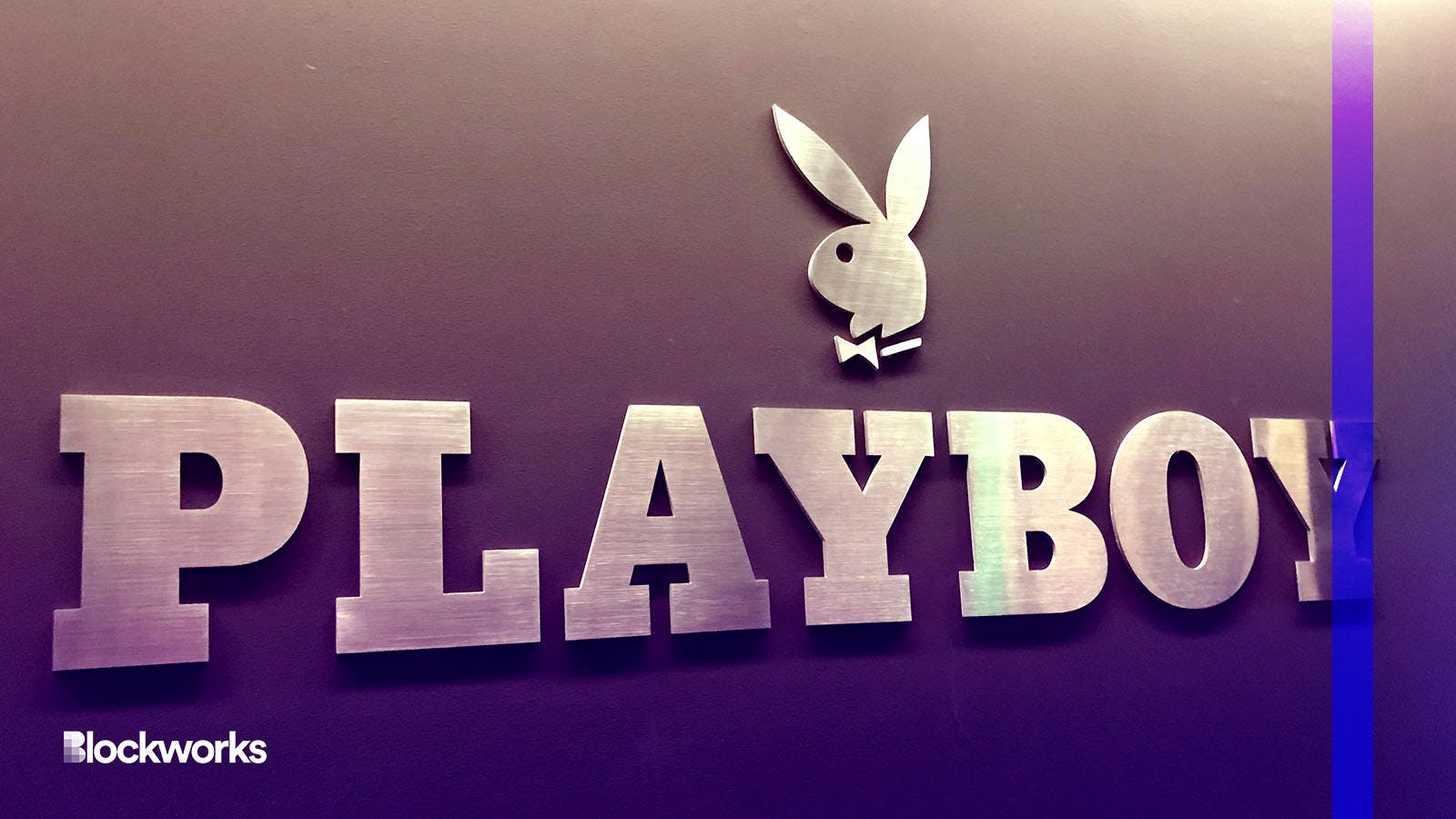Playboy Held All ETH Earned From NFTs — But It Cost Them $5M
Playboy said it may not enjoy significant growth if it fails to engage with digital assets and crypto

Source: Shutterstock / Alex Millauer, modified by Blockworks
Playboy Group was forced to write off nearly $5 million on ether that it accepted as payment for its NFTs.
In a Thursday filing, the media and lifestyle brand said it has held ETH received for sales of its Rabbitar NFTs, which were released in the fourth quarter of 2021.
Their value has gone down since then, however. As of the end of last year, the carrying value of Playboy’s digital assets fell to about $300,000, down 95% from $6.8 million at the end of the previous year, resulting in impairment charges on its balance sheet.
Overall, the company filed impairment charges worth $4.9 million on its crypto for the 2022 financial year, up from 2021’s $1 million paper losses.
Other companies to have recorded impairment charges on their crypto holdings include MicroStrategy and Jack Dorsey’s fintech firm Block (formerly Square).
Playboy released 11,953 unique 3D rabbit characters as NFTs as a tribute to its founding year 1953. Playboy said the NFTs were created by its Web3 innovation team, which partnered with Possible Studios and art studio WENEW.
OpenSea records 2,798 ETH ($4.9 million) in total volume with around 5,400 unique holders. The current floor price is 0.0703 ETH ($122).
Playboy said it accounts for digital assets as indefinite-lived intangible assets. This means Playboy must record their value as the lowest observable fair value within a reporting period.
“Therefore, negative swings in the market price of [ether] could have a material impact on our earnings and on the carrying value of our digital assets,” the firm said.
“Positive swings in the market price of Ethereum are not reflected in the carrying value of our digital assets and impact earnings only when the [ether] is sold at a gain.”
Ether is down 38% in the last year, but is up nearly 44% in the year-to-date period, according to Blockworks Research.
Playboy separately warned in the filing that the long-term adoption of digital assets is unpredictable. But it expects to continue commercial activities that involve digital assets and cryptocurrencies.
“If we fail to explore and commercialize these new technologies and apply them innovatively to keep our products and services competitive, we may not experience significant growth of our business,“ Playboy said.
Get the news in your inbox. Explore Blockworks newsletters:
- The Breakdown: Decoding crypto and the markets. Daily.
- 0xResearch: Alpha in your inbox. Think like an analyst.






